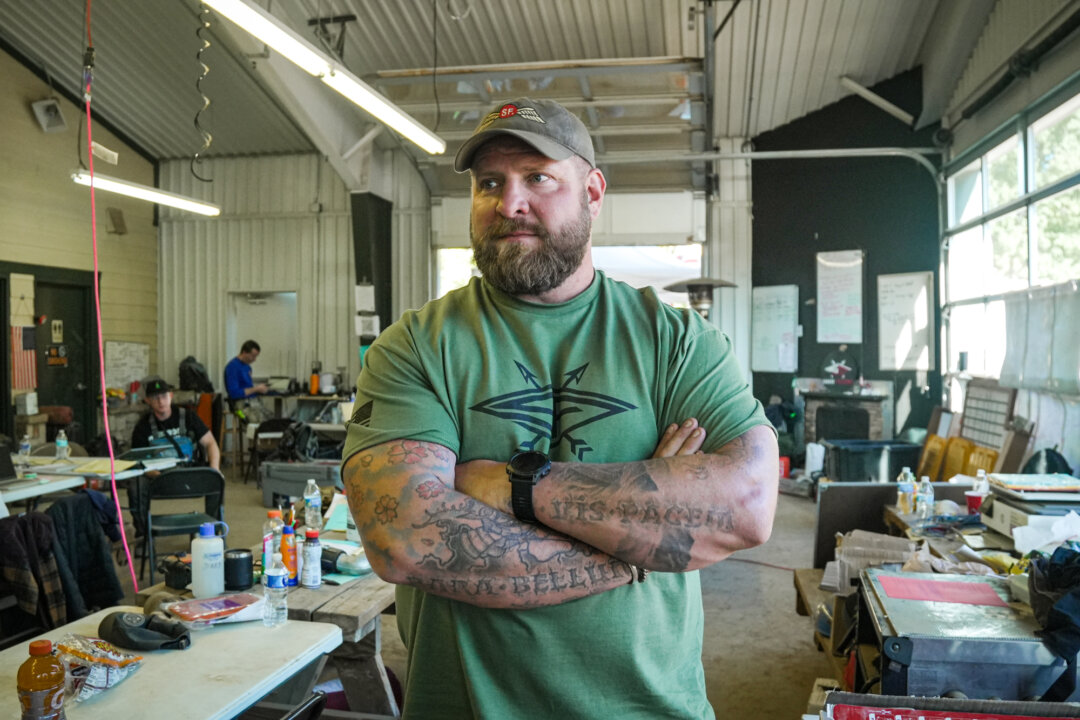
TAKE ACTION
USDA Approves GMO Wheat: Tell General Mills To Reject It
On August 27, 2024, President Joe Biden’s Agriculture Secretary Tom Vilsack said U.S. farmers could grow a GMO wheat variety that’s genetically engineered to soak up glufosinate, a pesticide that is 5 times more toxic than glyphosate and has been banned in the European Union since 2013. Glufosinate exposure is associated with low-birth-weight babies.
The USDA didn’t conduct a scientific review or offer opportunity for public comments before announcing its decision. That’s because of the GMO deregulation that President Donald Trump pushed through in 2020.
The glufosinate-tolerant wheat could become the first GMO wheat grown in the U.S. So far, its reach is limited to Argentina, Brazil and Paraguay. In addition, Australia, New Zealand, South Africa, Nigeria, and Indonesia allow GMO wheat to be imported for food and feed.
If this crop is integrated into our food system it would dramatically increase the load of agro toxins in the diet of Americans. As a major buyer of wheat in the US, we are asking General Mills to lead the way and pledge to reject this newly approved Genetically Modified wheat.
Who’s behind this disaster? It’s an Argentine company called Bioceres that’s traded on the New York Stock Exchange and counts Monsanto (Bayer) among its investors. Eaters around the world have revolted at the idea of glufosinate-soaked GMO wheat with successful campaigns including “Not In Our Wheat” and “Bread without Poison.”
Bimbo, the largest bakery company in the world, announced in May of this year that they would go GMO Free, General Mills who claims to be moving towards regenerative agriculture needs to make that commitment as well. As a first step to get General Mills to stop all use of GMOs and go organic and regenerative we ask them to reject this newly approved GMO wheat.

USDA WATCH
The Path Forward for Food and Ag
From Civil Eats:
“Leading voices in the food movement respond to a second Trump administration, and discuss where we go from here.
Civil Eats has covered the U.S. food system for nearly 16 years. In that time, we’ve been at the forefront of reporting on the policies—some arcane, some mundane—that impact everyone’s most basic daily need: food. From the farm bill to food justice to deep coverage of how the pandemic cratered our food system, we’ve pursued complicated and often underreported stories while lifting up underrepresented voices. Throughout, we’ve highlighted solutions to daunting challenges and interviewed the people working to create change.
Now, a week past the 2024 election, we’re at the brink of momentous shifts in how our food system functions—and for whom. Food and ag organizations across the country are weighing in on what the election could bring. What better time to ask our Civil Eats advisors and other leading thinkers in food about how they’re responding to this moment, what to expect from the new administration, and how to move forward? Below, they’ve generously shared their thoughts and insights on the future of food and ag during Trump 2.0. We encourage you to continue this conversation by adding your voices in the comments section.”
Hear from:
Chef José Andrés, founder of the Global Food Institute at George Washington University
Mark Bittman, author and journalist
Navina Khanna, executive director and co-founder, HEAL Food Alliance
Anna Lappé, executive director of the Global Alliance for the Future of Food
Marion Nestle, Paulette Goddard professor of nutrition, food studies, and public health emerita, New York University
And more leading thinkers in the food movement
SECRETARY OF AGRICULTURE FIGHT
Behind the scenes of the Trump transition team, a wrestling match is shaping up for nominee as Secretary of U.S. Dept. of Agriculture (USDA). Get Joel Salatin’s insight on this and why he says you cannot separate farming from food.

NEW BOOK
The Serviceberry: Abundance and Reciprocity in the Natural World
From Simon & Shuster:
“From the #1 New York Times bestselling author of Braiding Sweetgrass, a bold and inspiring vision for how to orient our lives around gratitude, reciprocity, and community, based on the lessons of the natural world.
As Indigenous scientist and author of Braiding Sweetgrass Robin Wall Kimmerer harvests serviceberries alongside the birds, she considers the ethic of reciprocity that lies at the heart of the gift economy. How, she asks, can we learn from Indigenous wisdom and the plant world to reimagine what we value most? Our economy is rooted in scarcity, competition, and the hoarding of resources, and we have surrendered our values to a system that actively harms what we love. Meanwhile, the serviceberry’s relationship with the natural world is an embodiment of reciprocity, interconnectedness, and gratitude. The tree distributes its wealth—its abundance of sweet, juicy berries—to meet the needs of its natural community. And this distribution insures its own survival. As Kimmerer explains, “Serviceberries show us another model, one based upon reciprocity, where wealth comes from the quality of your relationships, not from the illusion of self-sufficiency.”
As Elizabeth Gilbert writes, Robin Wall Kimmerer is ‘a great teacher, and her words are a hymn of love to the world.’ The Serviceberry is an antidote to the broken relationships and misguided goals of our times, and a reminder that “hoarding won’t save us, all flourishing is mutual.”
Robin Wall Kimmerer is donating her advance payments from this book as a reciprocal gift, back to the land, for land protection, restoration, and justice.”

ACRES USA 2024 ECO-AG CONFERENCE
Back to the Roots: Cultivating a Future Grounded in Tradition and Innovation
This is poised to be a pivotal time for Regenerative agriculture, don’t miss this conference with an all-star line up of some of the most influential people in the movement!
Two of those stars are people who are close to us, our phenomenal Regeneration International’s Director, André Leu, and the inspirational Reginaldo Haslett-Marroquin, CEO of Tree-Range Farms, owner-founder of Regeneration Farms LLC, and Founder and President of the Regenerative Agriculture Alliance.
André Leu, author of the groundbreaking new book, co authored with Ronnie Cummins, featuring the Billion Agave Project, The Regenerative Agriculture Solution.
He is well regarded for his books “The Myths of Safe Pesticides” and “Poisoning Our Children,” and is the International Director of Regeneration International and a former IFOAM President and current IFOAM Ambassador.
He co-authored “Biodiversity, Agroecology, Regenerative Agriculture” with Dr. Vandana Shiva and offers resources like the film “Poisoning Our Children,” the book “The Myths of Safe Pesticides,” and the “Regenerative Agriculture Course” online certificate course.
Reginaldo Haslett-Marroquin began working on economic development projects with indigenous Guatemalan communities in 1988, served as a consultant for the United Nations Development Program’s Bureau for Latin America, and as an advisor to the World Council of Indigenous Peoples, and co-founded the Fair-Trade Federation in 1994 and founded Peace Coffee in 1995. Before coming to the U.S. in 1992, Regi worked with artisan communities across Guatemala and built fair trade networks in Europe, the U.S., and Canada.
He founded Regenerative Agriculture Alliance with a mission to scale-up regenerative poultry and a family of economically, ecologically and socially related sectors that make up the regenerative poultry system and has won numerous awards for his work. He is a founding member of Regeneration International and is the author of “In the Shadow of Green Man”.

COMING CLEAN
Pretty Toxic: A Documentary Unveiling the Dangerous Side of the Beauty Industry
Analysis by Dr. Joseph Mercola:
“STORY-AT-A-GLANCE
* The documentary ‘Pretty Toxic’ highlights real-life cases of severe health consequences from using seemingly harmless personal care products, emphasizing the need for stronger safety regulations
* The U.S. cosmetics industry operates under minimal regulation, with outdated laws from 1938 and no FDA authority to recall dangerous products, posing health risks to consumers
* Common ingredients in personal care products, such as phthalates, parabens and formaldehyde, have been linked to serious health issues including cancer, reproductive problems and hormone disruption
* Environmental concerns arise from personal care product chemicals entering water systems, with sunscreen pollution significantly impacting marine ecosystems, particularly coral reefs
* Consumers can make informed choices using resources like EWG’s Skin Deep database, while supporting companies prioritizing safety and transparency, and advocating for stronger regulations and green chemistry education”
Also, check out Breast Cancer Action’s Think Before You Pink® campaign: a ground-breaking campaign calls for more transparency and accountability by companies that take part in breast cancer fundraising, and encourages consumers to ask critical questions about pink ribbon promotions. “Our work to end this breast cancer challenges ‘pinkwashing’ hypocrisy and pink ribbon culture, which have become the status quo of the breast cancer industry.”

NATIVE AMERICAN HERITAGE
Thoughts on Thanksgiving
By Tim Giago, Native Sun News:
“Sean Sherman, founder and CEO of The Sioux Chef and the author of The Sioux Chef’s Indigenous Kitchen, may have complicated and painful feelings about Thanksgiving, but is offering up new ways to observe it.
Sherman, who hails from the Oglala Sioux Tribe, said the following in a piece for TIME Magazine, which you should absolutely read in full:
‘The thing is, we do not need the poisonous ‘pilgrims and Indians’ narrative. We do not need that illusion of past unity to actually unite people today. Instead, we can focus simply on values that apply to everybody: togetherness, generosity and gratitude. And we can make the day about what everybody wants to talk and think about anyway: the food.
People may not realize it, but what every person in this country shares, and the very history of this nation, has been in front of us the whole time. Most of our Thanksgiving recipes are made with indigenous foods: turkey, corn, beans, pumpkins, maple, wild rice and the like. We should embrace this.’ Deanna Kalian, a recent graduate from Mount Holyoke College, had this to say about Native American Heritage Month. Writing in Mount Holyoke News, an independent student newspaper:
November is also Native American Heritage Month, a time to recognize the talents of the many Native Americans who have contributed to American culture. Here are five Native American writers you should know:
Louise Erdrich, a member of the Turtle Mountain Band of Chippewa, has written 15 novels and has also published volumes of poetry, children’s books, short stories and a memoir. Her novels have received numerous awards; her first, ‘Love Medicine,’ won the National Book Critics Circle Award. Another book, ‘The Plague of Doves,’ was a finalist for the Pulitzer Prize.”
Read about more Native American writers who have contributed to American culture
Check out “22 Essential Works of Indigenous Cinema” from TIME Magazine

SUPPORT OCA & RI
In Unison We Have Power
Those of us living in the USA have a particular responsibility to address the problems that stem from our corporate controlled government policies which adversely impact the entire world.
At the same time we work locally and regionally, we understand how the corporate control of our government on the federal level impacts the entire world.
We take our responsibility as citizens seriously and have not given up on the idea that in unison we have the power to change the world for the better.
This is the time to speak our truth; together we are the people we have been waiting for!
With your support, OCA will continue to work side by side with you. We believe that we, the global grassroots, are at a major turning point in history.
Together we can move beyond corporate disinformation and censorship to share the best practices of organic food, natural health, nutrition, and integrative medicine. We can clean up our toxic environment and toxic politics. We can move from elite technocratic domination to participatory democracy.
Please consider a donation to help us increase our ability to give citizens the opportunity to take action when needed, as well as step up our truth-telling and educational efforts.
Make a tax-deductible donation to Organic Consumers Association, a 501(c)(3) nonprofit
Make a tax-deductible donation to Regeneration International, our international sister organization

FOOD & FARMING
Regenerative Farming Has the Potential To Reverse Climate Change. This Chef Discusses How To Scale It
Camilla Marcus, Fast Company:
“In the foreword of My Regenerative Kitchen, Alice Waters powerfully captures the impact of regenerative farming, writing: ‘Let us embrace the soil as a sacred trust, a reservoir of hope from which the seeds of a sustainable future shall sprout. For in the embrace of healthy soil lies our greatest salvation—a beacon of resilience illuminating the path toward a thriving planet for generations to come.’ I’d love to start with you illuminating this vision.
We all stand on the same soil. Every single human—every living being on this planet—we all share that. For me, that’s one of the most powerful things about being in the food industry. We all have to eat. Food is our most universal language. It’s the thing that crosses barriers, cultures, differences, and divides. What she describes, and is the whole purpose of the book and my personal mission, is: It all starts with the soil. If the soil is healthy, we have a chance to reverse climate change. We have a chance to move past a crisis, and create a better food system—That is more nutritious, and sustainable for future generations, as she says, and frankly, the way it was always intended.
We lost the script post-Industrial Revolution. All the reasons that mono-crop industrial farming came about don’t exist anymore. We have to let go of that false paradigm and go back to the way nature intended, which was thinking about biodiversity and allowing nature to build resilience for itself. Through that, we get much higher nutritional value out of our food. I think that’s what she’s trying to say: The answer is in our land. It always has been.”

NEW STUDY
Even at Low Levels, Early BPA Exposure Is Hazardous to Health
U.S. Right to Know reports:
“Early exposure to bisphenol A (BPA) may increase your risk of developing conditions such as heart disease, stroke, type 2 diabetes, and obesity later in life, even in small doses, a recent study has found.
After accounting for factors such as diet and energy intake, the researchers found higher BPA exposure was linked to certain health risk factors, including:
* Higher blood insulin levels and insulin resistance, which means the body can’t use the hormone insulin properly to regular blood sugar (glucose) levels
* Higher body mass index (BMI), which uses height and weight to classify weight as healthy or unhealthy
* Increased fat mass, an increased amount of body fat relative to total body weight
* Larger waist circumference, which measures abdominal fat
‘We conclude that global strategies need to be developed and implemented to mitigate bisphenol A exposure,’ the researchers say. ‘This demands modifications, not only in consumer behaviors, but also in the adoption of innovative approaches by the food and food packaging industries, to ensure a substantial reduction of BPA exposure.’”
Read why there is an urgent call to reduce BPA daily exposure

RESOURCEFUL LIVING
22 Useful Depression Era Hacks To Help You Save Money Now
Sarita Harbour writes for An Off The Grid Life:
“Saving money has always been a priority, and depression era hacks prove that simple methods can make a big difference. These tips are rooted in practicality and creativity, offering ways to stretch your resources without feeling deprived. Whether it’s reducing waste, finding new uses for old items, or cutting costs in everyday life, these ideas are as useful now as they were back then. They’re perfect for anyone looking to spend smarter and live more resourcefully. Let’s explore these timeless tricks and see how they can work for you today.
* How to Grow Food from Scraps
* 7 Essential Hand Crank Kitchen Tools
* Homemade Laundry Detergent Recipe
* 21 Toilet Paper Alternatives for When the TP is Gone
* DIY Recipe: How to Make Your Own Homemade Toothpaste
* Easy Winter Composting Tips for Year-Round Success”

LITTLE BYTES
Other Essential Reading and Videos for the Week
Black Seed Oil — A Natural Ally in Maintaining Disease-Free Living
Federal Court Rules That Fluoridation Poses “An Unreasonable Risk” to Children
Your Body Can Absorb Vitamins Directly From Air, Evidence Shows
Vasectomy Appointments Increased by 1200%
UN Climate Summit Starts Week Two With Uphill Battle
Donald Trump’s Deportation Plan Causes ‘Panic’ Among Farmers
‘Wait, It’s Illegal for a Farmer To Grow Their Own Seeds?!’
How RFK Jr. Has Said He’ll Stop ‘Mass Poisoning’ of America’s Children
How Tariffs Could Change Your Grocery Shopping Experience
The Fundamentals of Stocks and Broths
Cut Ties With Genocide: A Fight Against Maersk
GOP Targets Medicaid, SNAP Benefits to ‘Pay for Tax Cuts for Their Billionaire Donors’
Environmental Groups Alarmed as Doug Burgum Picked for Us Interior Secretary
We Need To Investigate Links Between Chemical Industry, Governments
Chemical Giant Bayer Reports Heavy Drop in Profit Amid Ongoing Roundup Cancer Lawsuit
Glyphosate Mixtures Show Lethal and Sublethal Effects to Embryos, Highlights Regulatory Deficiencies
The post Organic Bytes Newsletter #873: Tell General Mills To Reject GMO Wheat! appeared first on Organic Consumers.
.png)


















 English (US)
English (US)